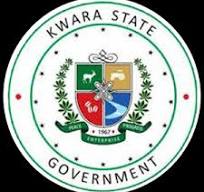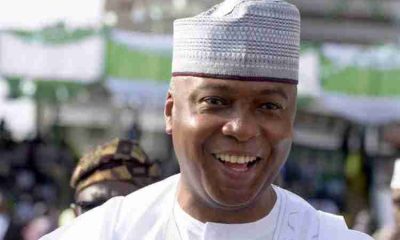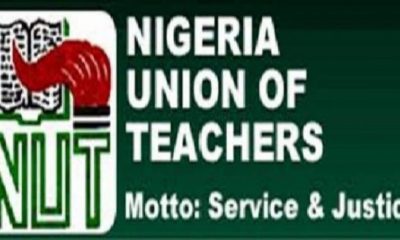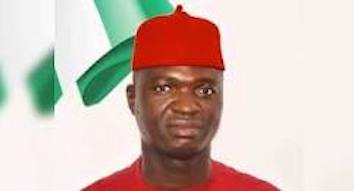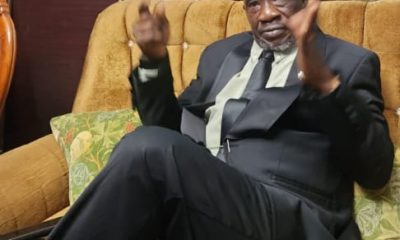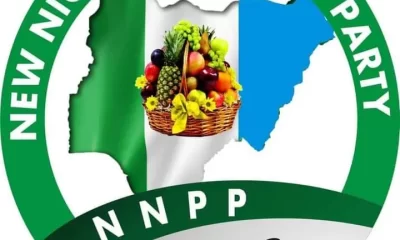Education
WAEC Commends Kwara for Curtailing Exams Malpractices
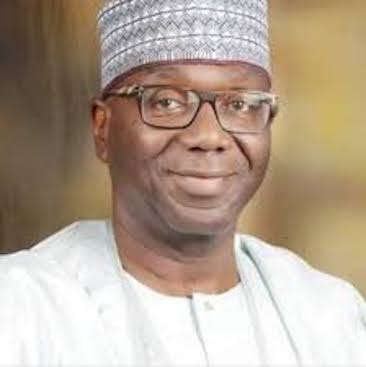
From Alfred Babs, Ilorin
The Kwara State government has been commended for its efforts in eradicating examination malpractices in the state during the May/June 2020 West Africa Examinations conducted by the Council.
The Human Resources Manager, West Africa Examination Council, Mr.
Adesoji Faboro made the commendation during the 2020 WAEC State Committee Meeting held at the Ministry’s Headquarters.According to him, “the swapping of Principals to other schools and the involvement of External Monitoring Teams that cut across lecturers from State Colleges of Education was a good initiative which is going to go a long way in reduction of examination malpractices and enhance development of the education sector in the state”.
He implored the Commissioner for Education and Human Capital Development to sustain the initiatives in the interest of future leaders that have been brainwashed.
Earlier, in her remarks, the Commissioner, Hajia Fatimah Bisola Ahmed, who was represented by the Director, Curriculum and Assessment, Alhaji Ismail Ibrahim, appreciated the West Africa Examination Council for recognizing the efforts of the present administration in curbing examination malpractices in the state.
She reiterated the commitment of Governor AbdulRahman AbdulRazaq led administration to the provision of sound and quality education that will give the Kwara a chance in life, productive and useful to self and the society at large.
The meeting was well attended by education stakeholders in the state.
In a similar development, the Chairman Kwara State House of Assembly Committee on Education, Honourable Saliu Muhammad Baba Boriya has commended the state government for allowing External Monitoring Teams that cut across educationists from State Colleges of Education to partake in this year’s West African body’s Examination supervision.
Honourable Boriya made this known during the official presentation of reports of the External Monitoring Teams on WAEC Supervision led by Dr Ayorinde Israel of College of Education, Ilorin, held at Ministry Headquarters.
In his words, “this is a landmark achievement in the history of education development in Kwara State. The gesture has contributed immensely to the reduction of examination malpractices and also boosts the morale of our students that they can make it without cheating in their examinations”.
He implored the government to sustain the gestures in subsequent examinations in the state.
Education
UNICAL VC Promises to Resolve Dentistry Students’ Crisis

From Ene Asuquo, Calabar
The Vice Chancellor of the University of Calabar, Prof. Florence Obi has promised that she would do everything humanly possible to ensure that the ongoing crisis in the institution’s Department of Dentistry, is resolved.
Prof.
Obi made the promise in Calabar during a press briefing, stressing that she will resolve the crisis before leaving office.She explained that the problem predates her administration, and pledged to intensify efforts to rectify the crisis.
She added that the crisis was as a result of the Medical and Dental Council of Nigeria (MDCN)’s refusal to induct 2016 Dentistry students of the institution.She also debunked claims circulating on social media that the institution’s Dentistry programme has lost its accreditation, describing the reports as “misinformation and distortion of facts,” clarifying that the programme remains fully accredited and no students have been directed to transfer to other universities.
“At no point did the University ask Dentistry students to seek transfers to other institutions, nor were they advised to ‘go and learn a trade’ as falsely alleged online,” the VC stated.
“I will feel very bad if I leave without solving this problem and the students are left hanging without knowing their fate. I won’t be fulfilled,” she said.
She reaffirmed the University’s commitment to ensuring all Dentistry students graduate and are duly licensed as dental surgeons.
She noted that the Dentistry programme commenced in the 2013/2014 academic session, and in November 2019, the University secured pre-clinical accreditation from the MDCN and full clinical accreditation was subsequently granted in December 2022.
The VC added that the university’s synergy and partnership with the Minister of Education and the Tertiary Education Trust Fund (TETFund) to upgrade its facilities.
“All we asked for is time to engage with other institutions, update the Medical and Dental Council of Nigeria (MDCN), and follow through on due processes,” she noted.
Speaking further, Obi said that some of the affected students demanded to be transferred to the Department of Medicine and Surgery but said it was not the solution as the department was already saturated.
She urged the affected students to remain calm, noting that the university was doing everything possible to resolve the issues before the end of her tenure.
Education
NUT Reaffirms Commitment to Teachers’ Professional Development in Kwara
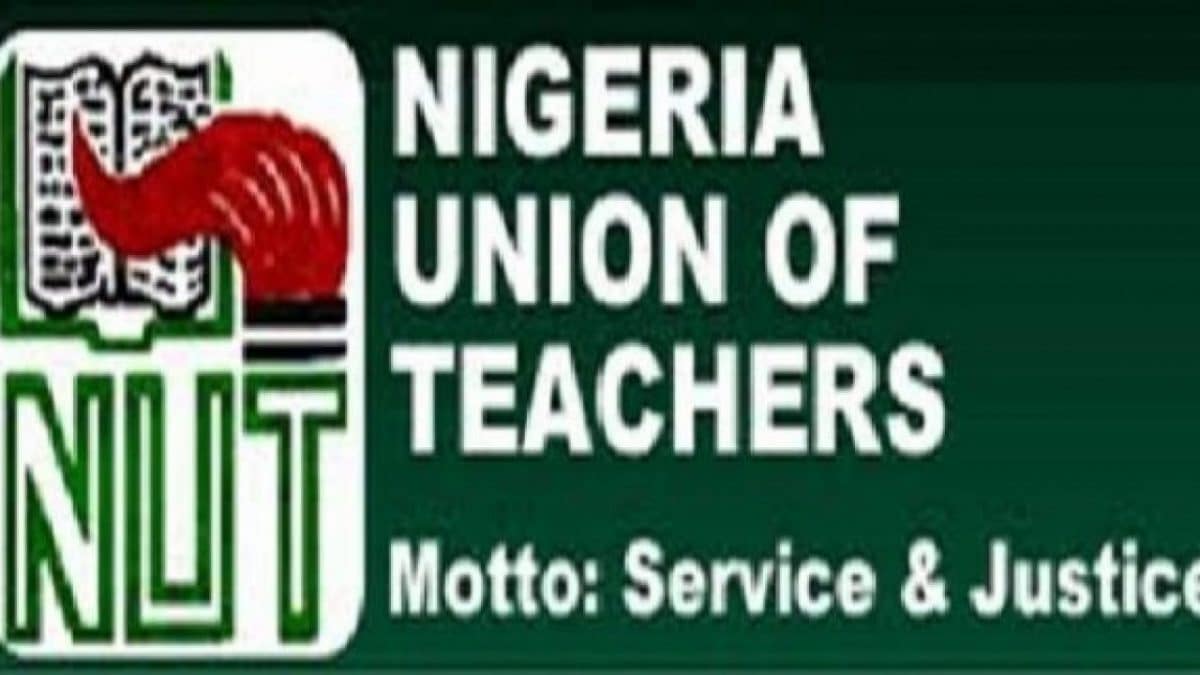
From Abdullahi Abubakar, Ilorin
The Nigeria Union of Teachers (NUT), Kwara State Wing has restated its commitment to strengthening the professional growth of teachers across the State, to enhance the quality of education delivered in public schools. Speaking at the opening of a three-day capacity-building workshop in Ilorin, the State Chairman of the Union, Comrade Yusuf Wahab Agboola, noted that continuous training of teachers remains a vital component of educational reform and improved classroom delivery.
The training, organised in collaboration with the NUT National Secretariat, is targeted at selected teachers and focuses on the “Study Circle Conveners’ Model”—a grassroots strategy for enhancing peer-to-peer learning and participatory leadership within the education sector.
Comrade Agboola explained that the workshop aims to equip teachers with practical skills in collaborative learning, peer engagement, and innovative teaching practices. He expressed optimism that the training would promote professional bonding among teachers and foster collective solutions to challenges facing the education sector.Also speaking at the event, the National Coordinator of the NUT Study Circle Project, Comrade Solomon Igbelowowa, traced the initiative’s roots to 1985 when it was introduced in Nigeria by the Swedish Teachers Association, having recorded success in Sweden and other parts of the world. He commended the Nigerian Union of Teachers for sustaining the project over the years and urged participants to engage fully and make the most of the training opportunity.
The workshop was officially declared open by the National President of the NUT, Audu Amba, who was represented by the 3rd National Vice President, Bashir Oyewo.
He encouraged teachers to approach the sessions with dedication and punctuality.
Education
JAMB Sets 150 Cut-off Mark for University Admissions

By Tony Obiechina Abuja
The Joint Admissions and Matriculation Board (JAMB) has fixed 150 as the minimum cut-off mark for admission into Nigerian universities for the 2025/2026 academic session.
The decision was reached on Tuesday during the 2025 Policy Meeting on Admissions, held at the Bola Ahmed Tinubu International Conference Centre in Abuja, with stakeholders from various tertiary institutions in attendance.
According to JAMB, 140 was approved as the minimum score for colleges of nursing sciences, while polytechnics, colleges of education, and colleges of agriculture will admit candidates with a minimum score of 100.
“The minimum admissible scores for admissions for the next academic session have been fixed at 150 for universities, 100 for polytechnics, 100 for colleges of education, and 140 for colleges of nursing sciences by the stakeholders (Heads of Tertiary Institutions),” JAMB announced via its official X account.

